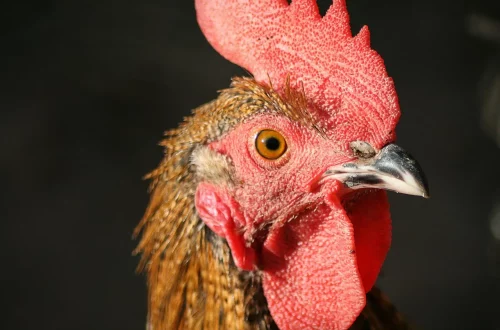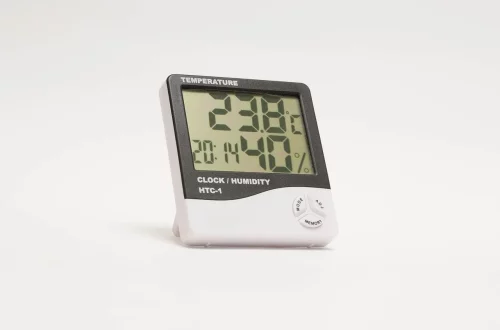
Understanding Heart Murmurs in Manhattan Cats: What Owners Should Know
Understanding heart murmurs in cats is an important topic for pet owners, especially in urban environments like Manhattan, where the hustle and bustle of city life can sometimes overshadow the subtler signs of our pets’ health. Heart murmurs, often detected during routine veterinary check-ups, can be a source of concern for many cat owners. They are essentially abnormal sounds produced by turbulent blood flow within the heart, and while they can indicate underlying health issues, they can also be benign in some cases.
As a responsible pet owner, understanding the implications of a heart murmur can be crucial for your feline friend’s well-being. The urban setting, with its unique lifestyle and stressors, can impact the health of our pets, making it even more essential to stay informed about potential health issues that may arise. Whether you’re a first-time cat owner or have years of experience, knowing how to recognize and respond to heart murmurs can significantly affect your cat’s quality of life. Moreover, being proactive about their health can foster a deeper bond between you and your cat, as you learn to recognize the signs of distress and address them promptly.
This article aims to provide valuable insights into the nature of heart murmurs in cats, their potential causes, and what you can do as a responsible cat owner to ensure the best care for your furry companion.
What Are Heart Murmurs?
Heart murmurs in cats are sounds made during the heartbeat cycle that can be heard with a stethoscope. These sounds are typically classified into two categories: systolic murmurs, which occur during the heart’s contraction phase, and diastolic murmurs, which happen when the heart is at rest between beats. Understanding the distinctions between these types of murmurs can aid in diagnosing the underlying issues affecting your cat.
Murmurs can arise from various factors. Some are innocent, meaning they are not associated with any significant heart disease. These are often seen in young cats and can resolve as the cat matures. However, other murmurs can indicate serious health problems, such as congenital heart defects, hypertrophic cardiomyopathy (a condition where the heart muscle becomes abnormally thick), or other cardiovascular diseases.
It’s essential to note that a heart murmur itself is not a disease but rather a symptom of an underlying condition. When a veterinarian detects a murmur, they will likely recommend further diagnostic tests, such as echocardiograms or blood tests, to determine the exact cause. This process can help in identifying whether the murmur is benign or if it requires treatment.
Moreover, understanding heart murmurs involves recognizing the different grades of murmurs, ranging from grade I (barely audible) to grade VI (audible without a stethoscope). The grade can provide insight into the severity of the condition. As a cat owner, being aware of these classifications can help you communicate effectively with your veterinarian and understand the potential implications for your pet’s health.
Common Causes of Heart Murmurs in Cats
There are numerous reasons why a cat might develop a heart murmur. One of the most prevalent causes is heart disease. As mentioned earlier, hypertrophic cardiomyopathy is a significant concern, particularly in certain breeds such as Maine Coons and Ragdolls. This hereditary condition can lead to serious complications, including heart failure, if not monitored and managed properly.
Another common cause of heart murmurs is anemia. When a cat’s blood lacks adequate red blood cells, it can lead to changes in blood flow, resulting in a murmur. Anemia can be caused by various factors, including parasitic infections, chronic diseases, or nutritional deficiencies.
Infective endocarditis, an infection of the heart valves, can also lead to the development of murmurs. This condition is less common but can be severe, necessitating immediate veterinary intervention. Additionally, congenital heart defects, which cats are born with, can lead to murmurs as well. These defects might not be diagnosed until later in life, making regular veterinary check-ups vital for early detection.
Obesity can also play a role in the development of heart murmurs. Excess weight can strain the heart and lead to physiological changes. Maintaining a healthy diet and ensuring regular exercise can help mitigate these risks.
As a cat owner, understanding these causes can empower you to take preventative measures. Regular veterinary visits, a balanced diet, and awareness of your cat’s behavior and health can significantly impact their overall well-being.
Recognizing Symptoms and When to Seek Help
Cats can be quite adept at hiding their ailments, making it challenging for owners to recognize when something is wrong. Besides the audible heart murmur, there are several signs and symptoms that may indicate a heart issue. Common symptoms include lethargy, decreased appetite, rapid breathing, and coughing. You may also notice changes in your cat’s behavior, such as increased irritability or hiding more than usual.
If your cat exhibits any of these symptoms, it’s crucial to consult your veterinarian as soon as possible. Early detection can lead to better management of potential health issues and improve your cat’s quality of life.
Monitoring your cat’s regular health and behavior can help in identifying any concerning changes. Keeping a journal of your cat’s eating habits, activity levels, and any unusual behavior can provide valuable information for your veterinarian during check-ups.
In Manhattan, where stressors such as noise and limited space can affect your cat’s well-being, it’s essential to create a calm environment. Providing your cat with a safe space, engaging them in play, and ensuring they have access to fresh water and a balanced diet can contribute positively to their overall health.
Regular veterinary check-ups are also vital in managing your cat’s health. These appointments can help catch potential issues early on, including heart murmurs, and allow for timely intervention if necessary.
Managing Heart Murmurs: Treatment Options and Care
The management of heart murmurs in cats largely depends on the underlying cause identified by your veterinarian. If the murmur is classified as innocent, no treatment may be necessary. However, regular monitoring will still be essential to ensure that no new symptoms develop.
For murmurs associated with heart disease, treatment options can vary. Medications such as beta-blockers or diuretics may be prescribed to help manage the condition. In some cases, dietary adjustments or weight management strategies may be recommended to reduce strain on the heart.
In more severe cases, such as those involving congenital defects or significant heart disease, surgical interventions may be necessary. This could involve procedures to repair heart valves or correct structural abnormalities.
It’s important to maintain open communication with your veterinarian about your cat’s condition. Regular follow-ups can help track changes in your cat’s health and ensure that any treatment plan is effective.
In addition to medical treatment, providing a stress-free environment can greatly benefit your cat’s heart health. Engage in gentle play, maintain a stable routine, and monitor their diet closely. The emotional well-being of your pet is just as important as their physical health.
As a cat owner, being proactive and informed is crucial in managing your pet’s health. While a heart murmur can be concerning, understanding the condition and working with your veterinarian can lead to effective management and a better quality of life for your feline friend.
**Disclaimer:** This article is for informational purposes only and does not constitute medical advice. Always consult a veterinarian for medical concerns regarding your pet’s health.




